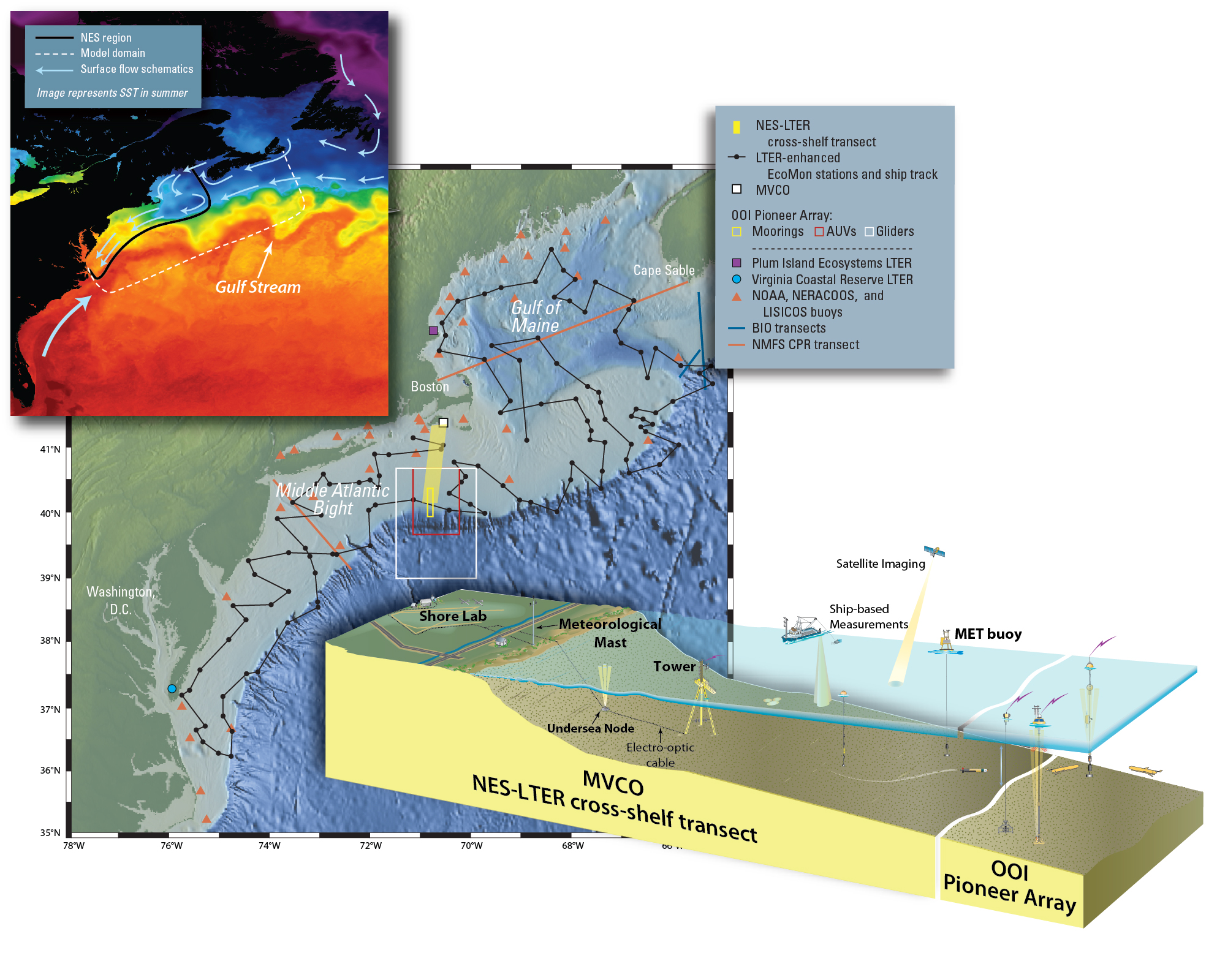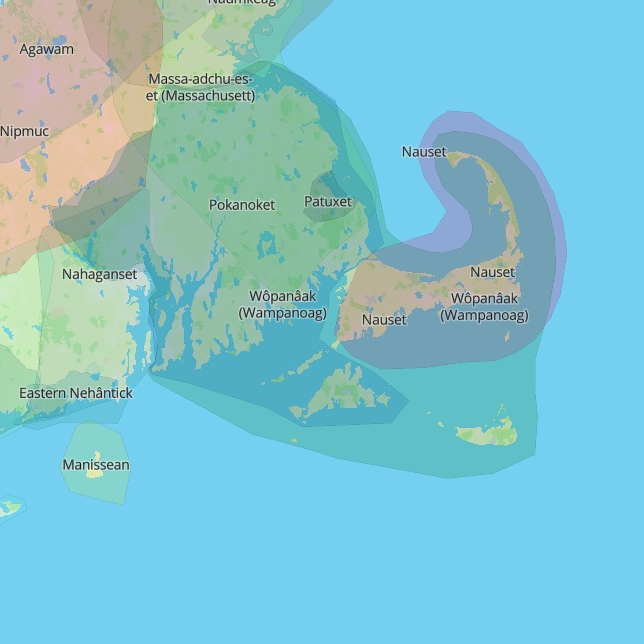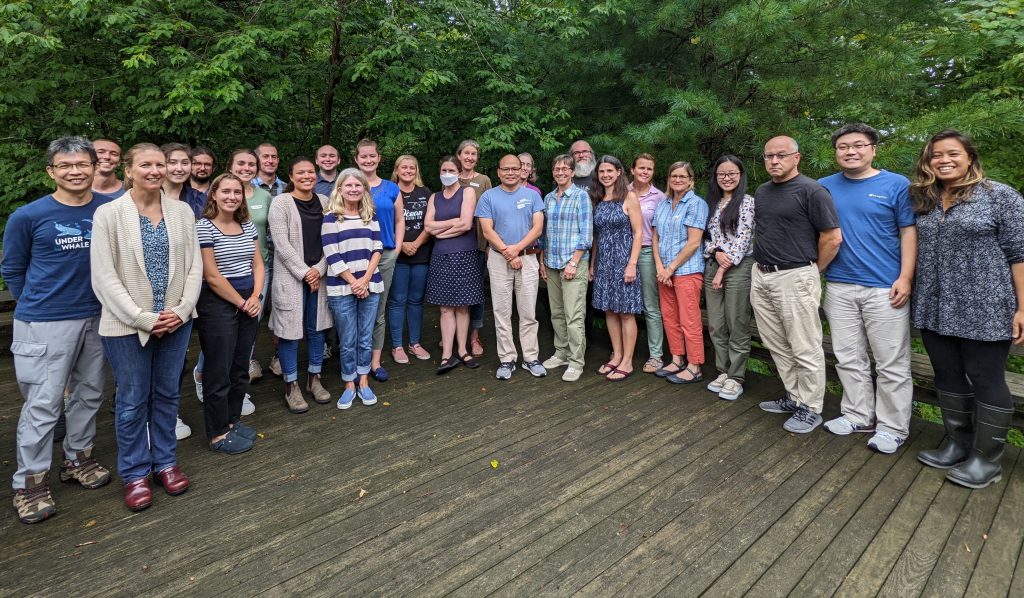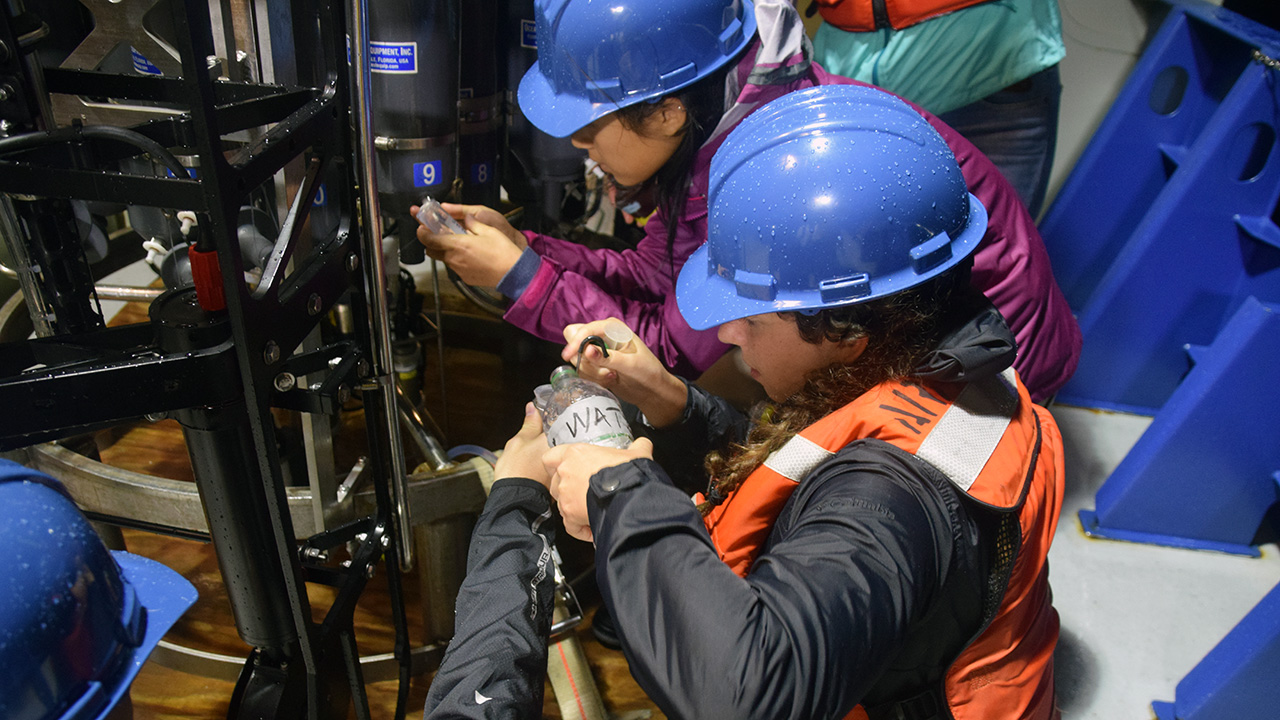About
What is the NES-LTER?
The northwest Atlantic, renowned for its fisheries, is experiencing faster-than-average warming and other impacts from environmental variability and human activities. Although patterns of ecosystem change over seasons to decades have been documented in this region, key mechanisms linking changes in the physical environment, planktonic food webs, and higher trophic levels remain poorly understood. The Northeast U.S. Shelf (NES) Long-Term Ecological Research (LTER) project integrates observations, experiments, and models to understand and predict how planktonic food webs are changing in this region, and how those changes impact the productivity of higher trophic levels.
- More in our Site Brief
- Link to article in WHOI's Oceanus Magazine
NES-LTER Site Talk presented at Science Council in May 2023
Related Information

The NES-LTER focuses on a cross-shelf transect from MVCO to the OOI Pioneer NES Array (foreground). Quarterly cruises in partnership with NOAA NEFSC provide select information at broad spatial scales and a greater contextual understanding of changes occurring in the NES ecosystem (central map shows example cruise track). Our multi-scale modeling effort encompasses a domain that extends beyond NES boundaries (top left, with characteristic SST distribution).
Where is the NES-LTER?
The NES-LTER is co-located with the Northeast U.S. Continental Shelf Large Marine Ecosystem, spanning the Middle Atlantic Bight and Gulf of Maine. Our broadscale studies are conducted on NOAA’s Northeast Fisheries Science Center Ecosystem Monitoring (EcoMon) cruises. Our focal cross-shelf transect along longitude 70 deg 53’ W extends about 85 nautical miles (~150 km) southward from Martha’s Vineyard to just beyond the shelf break. Real-time observations are available for the inner shelf at the Martha’s Vineyard Coastal Observatory (MVCO), and observations are available through fall 2022 for the outer shelf at the Ocean Observatories Initiative (OOI) Pioneer NES Array.
» Link to list of NES-LTER Standard Stations
» View an interactive map of present conditions and the forecast for the next 3 days at the Northeast Coastal Ocean Forecast System (NECOFS)
Land and Coastal Waters Acknowledgement
Native lands upon which our institutions now sit:
WHOI and UMass Dartmouth: Wampanoag Nation
URI: Narragansett Nation
Wellesley: Massachusett Nation
The NES-LTER team recognizes that the institutions with which we are affiliated sit on and the coastal waters we study border on the ancestral and unceded homelands of the Wampanoag, Narragansett, and Massachusett Nations. We acknowledge the painful history of erasure of indigenous peoples and their culture, and honor and respect the many diverse indigenous peoples still connected to their land and surrounding waters. We also honor and respect the substantial traditional and local knowledge they have of our regional waters and marine ecosystems that we strive to understand.

Who is involved?
The NES-LTER is led by Dr. Heidi M. Sosik at Woods Hole Oceanographic Institution (WHOI), with 11 co-Principal Investigators (co-PIs) from University of Massachusetts Dartmouth, University of Rhode Island, Wellesley College, WHOI, and NOAA’s Northeast Fisheries Science Center. Technical staff, postdoctoral researchers, graduate students, and undergraduate students also participate from all the partner institutions. We also have an education specialist for the Schoolyard.
Our affiliated programs include the Martha’s Vineyard Coastal Observatory, the Ocean Observatories Initiative, and NOAA’s Northeast Fisheries Science Center Ecosystem Monitoring (EcoMon) program. Affiliated researchers from several institutions are collaborating with the NES-LTER. Affiliated educators include participants in the Schoolyard, presently from Middle and High Schools in MA, ME, RI, VT, WI, and AL!

NES Team attending Annual Meeting at WHOI
Related Information
- For current NES-LTER personnel, select Site Northeast U.S. Shelf on the LTER Network Hub
- Read more about our approach to JEDI

Get involved
- Researchers: If you are interested in submitting a companion proposal for research associated with the NES-LTER, contact Lead PI Heidi Sosik.
- Educators: If you are interested in joining the NES-LTER Schoolyard for Middle and High School teachers, contact Annette Brickley.
- Undergraduate students: If you are interested in Research Experiences for Undergraduates (REUs), contact Kama Thieler.
- JEDI opportunities



